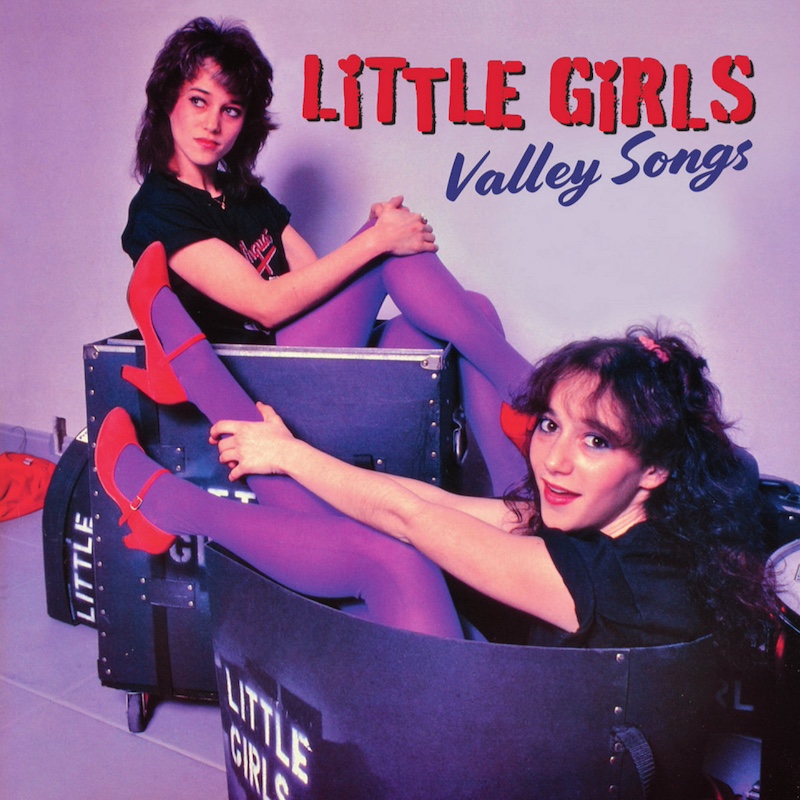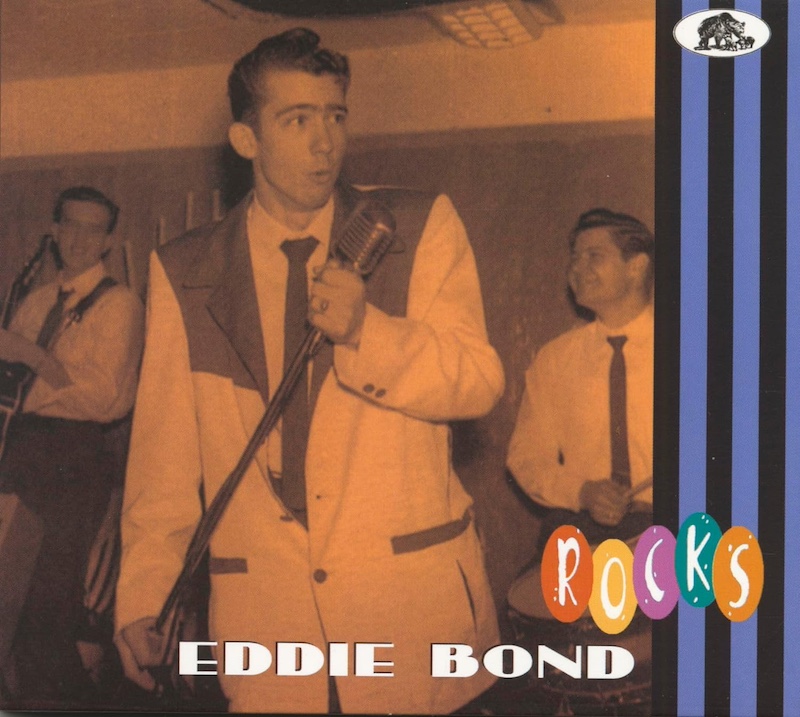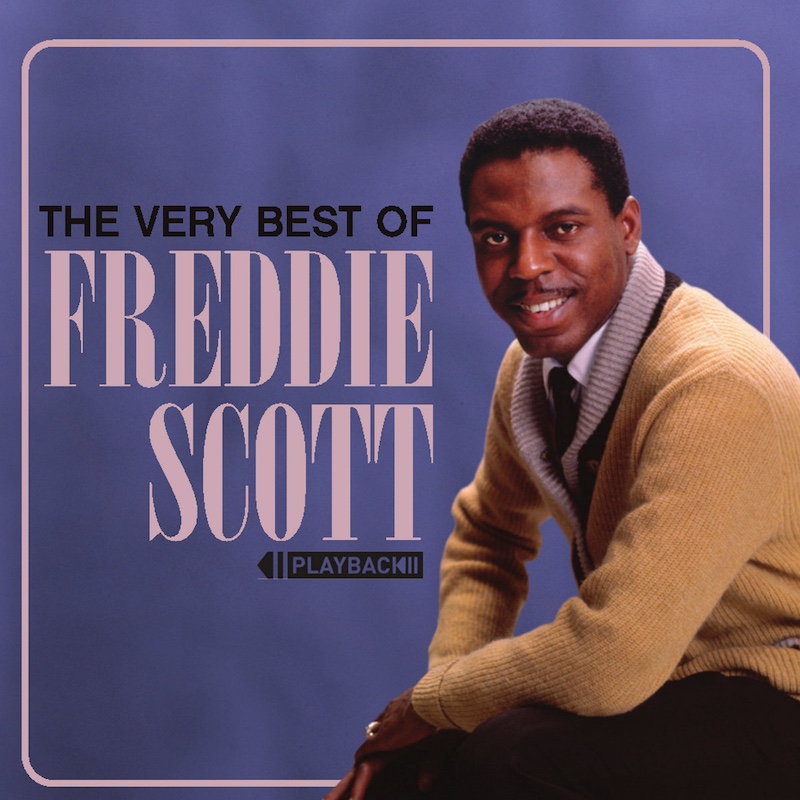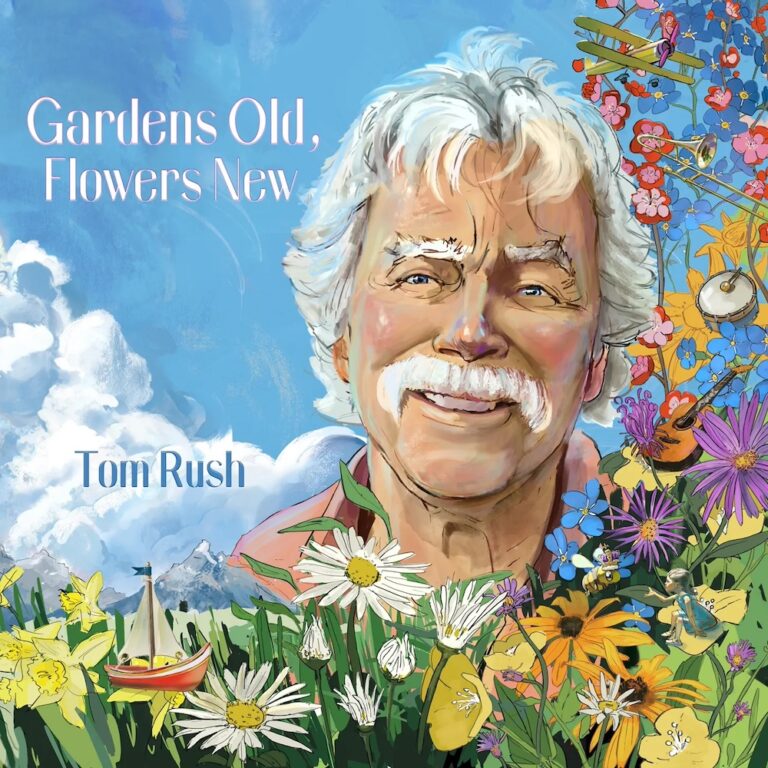Folk singer Tom Rush, who has been performing and recording for more than 60 years, has long been known primarily as an adept interpreter of other writers’ songs. His 1968 album The Circle Game famously helped to introduce Joni Mitchell, James Taylor, and Jackson Browne to wide audiences, and well-chosen covers dominate the other albums in his catalog.
Unlike most of Rush’s LPs, however, 2018’s Voices found him emphasizing his own material on an album that included 10 self-penned numbers along with his arrangements of two traditional tunes. Now he’s back with Gardens Old, Flowers New, which like its most recent predecessor consists almost entirely of new original compositions. (The sole exception is “Gimme Some of It,” which melds new lyrics by Rush to a honky-tonk-piano-enhanced version of an old blues tune called “Custard Pie.”)
The material is excellent, which should come as no surprise: while Rush didn’t write much until recently, many of the numbers that he has composed over the years are terrific, starting with “No Regrets,” a poignant breakup song from The Circle Game that has been covered by umpteen artists. Rush also wrote “Rockport Sunday,” a fine instrumental on that same album, and co-authored such other standouts as Wrong End of the Rainbow’s “Merrimac County.”
He says that the new album’s title, which shows up in the lyrics for two tracks, is meant “to convey the idea that many things in life – watching your child learn about the world or falling in love – have happened millions and millions of times through the eons but each time is always fresh and different.” In fact, Gardens Old, Flowers New itself tackles old subjects in new and distinctive ways. There are touching love songs such as “To See My Baby Smile” and “If You Love Me”; and, like all Rush albums, this one offers light moments as well, among them “I Quit,” which fits in the title of Mitchell’s “Urge for Going” and is lyrically a bit reminiscent of Robert Earl Keen’s “I Gotta Go.”
The album is as strong musically as it is lyrically. Rush turned 83 in February, but you’d never know it from his engaging baritone, which is as strong as it was on his 1960s LPs. His melodies here are excellent and so is his band, which includes multi-instrumentalist and longtime cohort Matt Nakoa, who produced the CD, as well as eight other players who add dobro, fiddle, accordion, sax, cello, and more.
Three Under-appreciated Acts

The Little Girls, Valley Songs. Is there no justice in the world? This excellent 1980s Southern California–based outfit, led by sisters Caron and Michele Maso and often featuring guitarist Kip Brown, never made it to a national audience. In fact, the group (whose name refers to the siblings’ heights, not their ages) never even issued a full-length album and was frequently dismissed as a novelty act based on numbers like “Earthquake Song.”
However, that song is no sillier than, say, the B-52s’ hits, and many of the Little Girls’ power-pop tunes are as loaded with hooks and harmonies as records by the similarly styled and far more successful Go-Gos and Bangles. The proof is in this 26-track anthology, which comes with a 28-page booklet and includes the six numbers from the Little Girls’ sole original release, a 1983 EP called Thank Heaven!. Also featured are demos, performances from a 2006 reunion, previously unreleased recordings, and a couple of surf music–influenced songs by the Hollyberries, a spinoff group.
Highlights include “Left without a Real Kiss,” which sounds redolent of early Blondie (whose Nigel Harrison and Clem Burke are among the musicians who backed up the sisters); “Come Back to Me,” which opens with a drum riff that echoes the Ronettes’ “Be My Baby”; the acoustic “Love Song,” which evokes the Everly Brothers; “No Time to Say Goodbye” and “I Really Want to Be with You,” which are redolent of the short-lived Norwegian group the Tuesdays; and the sweet, midtempo “Crush on You” and “Upswing.” The set also incorporates winning covers of Gerry Goffin and Carole King’s “He’s a Bad Boy,” which sounds like something out of the Shangri-Las’ catalog; Jonathan Richman’s “The Beach”; and the Dave Clark Five’s “Anyway You Want It,” which opens with an acapella verse sung to the tune of Buddy Holly’s “Everyday.”

Eddie Bond, Rocks. Memphis native Eddie Bond – who was known as the “rockin’ daddy from ding dong Tennessee” – never achieved the fame enjoyed by such contemporaries as Elvis Presley, Johnny Cash, and Carl Perkins, all of whom shared billings with him. But the singer and guitarist, who died in 2013, could rock with the best of them.
This 35-track set, which comes with an informative 40-page booklet, contains 35 of his best recordings – 14 from the late 1950s when rockabilly was in favor, 15 from the 1960s, and six from the 1970s when a rockabilly revival bloomed. Backed by high-octane combos, Bond belts out such numbers as Perkins’s “Blue Suede Shoes,” Hank Williams’s “Fool about You,” Roger Miller’s “Love, Love, Love,” Chuck Berry’s “Memphis, Tennessee,” and several self-penned songs.

Freddie Scott, The Very Best of Freddie Scott. There’s a reason this anthology is called The Very Best of Freddie Scott rather than, say, Freddie Scott’s Greatest Hits: the singer made it into Billboard’s Top 40 only twice, with 1963’s “Hey Girl,” which reached the No. 10 slot, and 1967’s “Are You Lonely for Me,” which topped R&B charts, but only briefly dented the pop list at No. 39.
The lack of greater commercial success notwithstanding, the singer, who died in 2007, had three big things going for him. First, he was a soulful and versatile vocalist who could do justice to material as diverse as Bob Dylan’s “I Shall Be Released,” Ray Charles’s “I Got a Woman,” and Tommy James’s “Sugar on Sunday,” all of which are featured here. Second, his records benefit from complementary, full-bodied productions. And third, they tap top-notch songwriters – including Scott himself.
The singer co-wrote three of the tracks in this anthology and other composers on the record include famed producer Bert Berns (aka Bert Russell), who penned “Are You Lonely for Me” and wrote or co-wrote three of the other tracks; and the husband-and-wife Brill Building team of Gerry Goffin and Carole King, who contributed “Hey Girl” and two more numbers. Also credited for the program here are such composers as Van McCoy, Kenny Gamble and Leon Huff, Barry Mann and Cynthia Weil, and Jerry Leiber and Mike Stoller.
Jeff Burger’s website, byjeffburger.com, contains five decades’ worth of music reviews, interviews, and commentary. His books include Dylan on Dylan: Interviews and Encounters, Lennon on Lennon: Conversations with John Lennon, Leonard Cohen on Leonard Cohen: Interviews and Encounters, and Springsteen on Springsteen: Interviews, Speeches, and Encounters.



